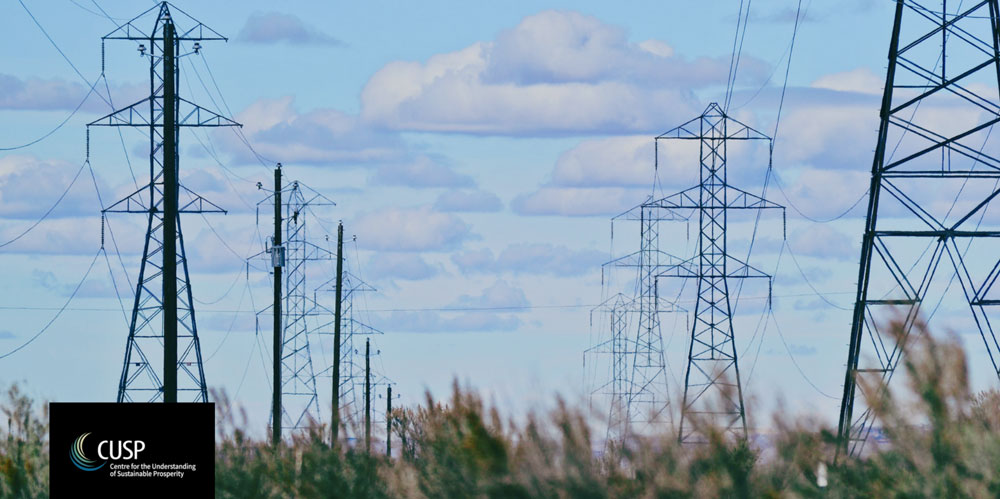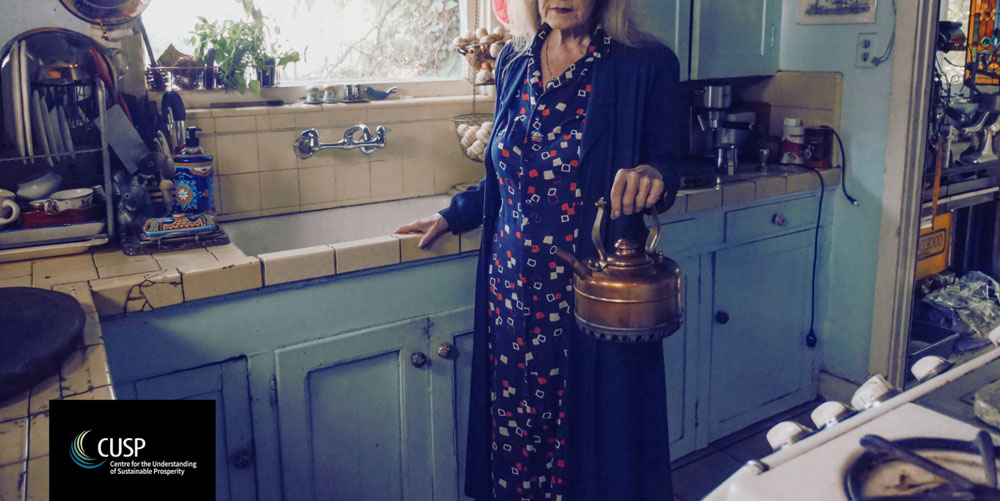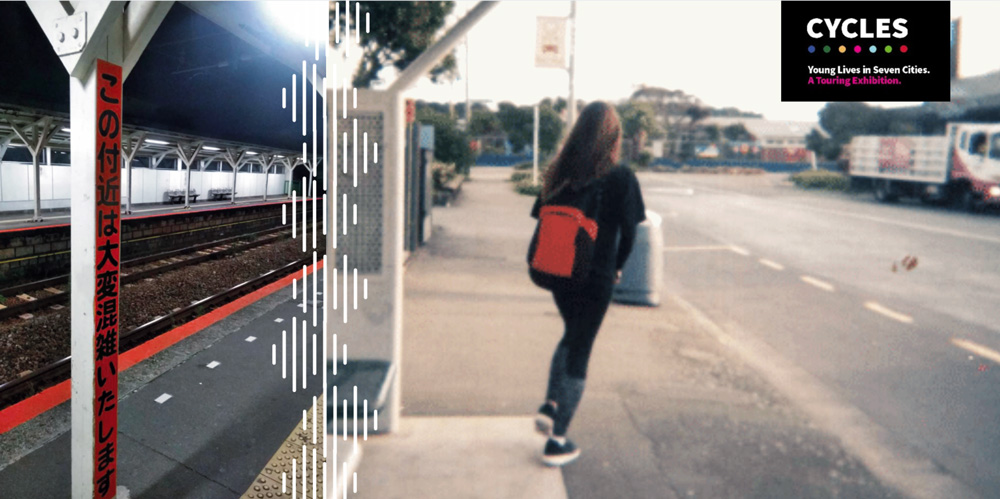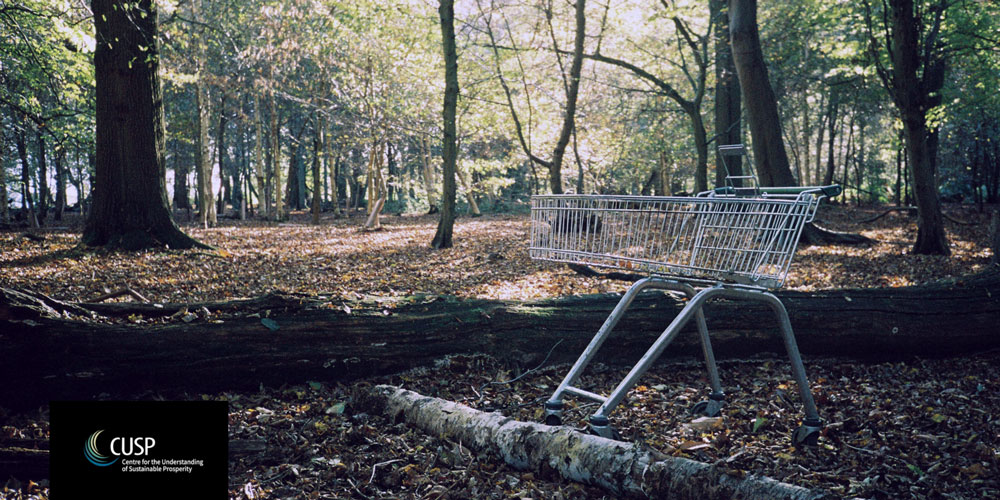PUBLICATIONS
As our work progresses, publications are arising from our research themes and cross-cutting projects. We produce working papers, journal articles, evidence submissions to government enquiries, essays, books and book chapters. Subscribe to our newsletter to receive a monthly digest in your inbox. If you want to hear more frequently from us, you can subscribe to email updates from the website directly.

Fast food seems unequivocally at odds with any moves towards more sustainable food consumption. It is identified as a major contributor to obesity, health inequalities, and to environmental impacts through its production and distribution. However, this problematisation of fast food ignores its contribution to understandings of “living well”, particularly for young people.

Reaching the UK net-zero emissions target translates into substantial investment requirements into low-carbon energy infrastructure. However, investors are currently not investing sufficiently in renewable energy capacity, leading to the so-called green finance gap.

Drawing on serial interviews with individuals in the United Kingdom, we explore how the transition to retirement highlights the complexity of participants’ attachment to things, and what the implications for sustainable consumption and for later-life wellbeing are.

This article addresses a pertinent question facing government policymakers: how best to support VC to achieve climate change objectives? Based on over 100 in-depth interviews, it focuses on the supply-side policy, design, and implementation of four UK government-backed venture capital funds (GVCFs) at various stages of their development.

Drawing on semi-structured interviews carried out with members and organisers of the Ages and Stages theatre group in Stoke-on-Trent, United Kingdom, this article examines the role of community theatre as an arts practice that facilitates intergenerational relationships. The findings point to a need for a deeper integration of arts and cultural practice, intergenerational practice and urban regeneration schemes.

Previous research has shown that the possession of materialistic values can lead individuals to be less likely to experience flow, an important component of well-being. This study tested whether a lack of self-regulatory resources, and a tendency to use self-regulatory resources for avoidance purposes, can mediate this relationship.

Youth Attitudes and Participation in Climate Protest: An international cities comparison Journal paper | Frontiers in Political Science | September 2021 Kate Prendergast, Bronwyn Hayward, Midori Aoyagi, Kate Burningham, Mehedi M. Hasan, Tim Jackson, Vimlendu Jha, Larissa Kuroki, Anastasia Loukianov, Helio Mattar, Ingrid Schudel, Sue Venn and Aya Yoshida Summary This article examines youth participation […]

Journal paper by Sarah Hafner, Aled Jones and Annela Anger-Kraavic, developing a system dynamics energy-economy model to explore the long-term macroeconomic effects, and changes in the power system costs of different low-carbon electricity transition scenarios. The paper argues that an early retirement of a certain amount of brown energy infrastructure is required, and needs to be determined with care.

A new joined-up post-Covid biodiversity policy paper argues that addressing biodiversity loss requires a transformative change of the global economic system, and concludes that the COVID‐19 pandemic, and current delays in the negotiation of the post‐2020 global biodiversity agenda of the Convention on Biological Diversity heighten the urgency to build back better for biodiversity, sustainability, and well‐being.

Post‐pandemic recovery must address the systemic inequality that has been revealed by the coronavirus crisis. The roots of this inequality predate the pandemic and even the global financial crisis. They lie rather in the uneasy relationship between labor and capital under conditions of declining economic growth.

Welfare systems across the OECD face many combined challenges, with rising inequality, demographic changes and environmental crises likely to drive up welfare demand in the coming decades. Economic growth is no longer a sustainable solution to these problems. It is therefore imperative that we consider how welfare systems will cope with these challenges in the absence of economic growth. We review the literature tackling this complex problem.

The Financial Independence Retire Early (FIRE) community consists of individuals each personally dedicated to reducing consumption, so as to build up financial surpluses that are eventually adequate to live off. Using semi-structured interviews with leading FIRE advocates and analysis of books and blog content, this paper assesses the ambivalent moral economy of FIRE.

The TranSim modelling work shows that the negative effects associated with the transition—recession, stagnation, stagflation, increasing inequality and asset stranding—are positively related to the capital intensity of green energy production and reductions in EROI. Policy makers should pay close attention to the overall EROI of the entire energy system when determining energy policy. If significant reductions in EROI are unavoidable, then policy could be used to mitigate some of its negative economic effects.

Labour productivity is a key concept for understanding the way modern economies use resources and features prominently in ecological economics. Ecological economists have questioned the desirability of labour productivity growth on both environmental and social grounds. In this paper we aim to contribute to ongoing debates by focusing on the link between labour productivity and worker wellbeing.

This paper proposes a new, integrative typology of actors involved in climate change mitigation policy in the United Kingdom (UK) and a method for mapping these actors and selecting their typological descriptors onto a 2D space.

Mainstream environmental politics has become a largely technical, problem-solving matter of realising concrete targets—environmental politics scholarship seems to have followed suit. This article contends a solely target-driven discourse loses sight of two vital dimensions of environmental politics: radical imagination and ideology critique.

Planetary health sees neoliberal capitalism as a key mediator of socioecological crises, a position that is echoed in much COVID-19 commentary. In his essay for The Lancet Planetary Health, Simon Mair sets out an economic theory that emphasises some of the ways in which neoliberal capitalism’s conceptualisation of value has mediated responses to COVID-19.

This journal paper provides a comparative analysis of young people’s experiences with local transport and green space in seven diverse urban communities (Christchurch, New Zealand; Dhaka, Bangladesh; Lambeth/London, UK; Makhanda, South Africa; New Delhi, India; São Paulo, Brazil; and Yokohama, Japan)—as part of the CYCLES study.

The COVID-19 pandemic has caused dramatic and unprecedented impacts on both global health and economies. Many governments are now proposing recovery packages to get back to normal, but the 2019 Intergovernmental Science-Policy Platform for Biodiversity and Ecosystem Services Global Assessment indicated that business as usual has created widespread ecosystem degradation. Therefore, a post-COVID world needs to tackle the economic drivers that create ecological disruptions.

Current global changes require new business approaches driving sustainable development on all fronts. To date, most business approaches have focused on sustainable marketing and corporate social responsibility initiatives. In this field study, we examine IKEA’s Live Lagom project.

Recent attempts by local governments to engage in participatory policy-making hint at a willingness for a more democratically inclusive approach to policy. However, there is often a gap between the rhetoric of citizen engagement and the actual implementation of these policy-making initiatives.

This paper draws on the insights from an exploration of Instagram posts tagged #goodlife to consider the role of Instagram in the constitution of good life narratives that are available to young people. Using network analysis tools, the researchers analyse the relationships between themes of hashtags appearing on 793 posts tagged #goodlife.

Well-known academic and non-academic institutions call for a new approach in economics able to capture features of modern economies including, but not limited to, complexity, non-equilibrium and uncertainty. In this paper, we provide a systematic review of ecological macroeconomic models that are suitable for the investigation of low-carbon energy transitions and assess them based on the features considered desirable for a new approach in economics.

Materialism is associated with a broad range of negative outcomes for individuals, societies, and the planet. This study demonstrates that encouraging and activating self-transcendence values and intrinsic goals is an effective strategy to c materialistic goal orientation.

This paper presents a stock-flow consistent (SFC) macroeconomic simulation model for Canada. Contrary to the widely accepted view, the results suggest that ‘green growth’ (in the Carbon Reduction Scenario) may be slower than ‘brown growth’. More importantly, we show (in the Sustainable Prosperity Scenario) that improved environmental and social outcomes are possible even as the growth rate declines to zero.

The need to locate ways of living that can be both beneficial to personal well-being and ecologically sustainable is becoming increasingly important. Flow experiences show promise for the achievement of personal and ecological well-being. However, it is not yet understood how the materialistic values promoted by our consumer cultures may impact our ability to experience flow.

Global economic stability could be difficult to recover in the wake of the Covid-19, this Nature article finds. Even before the Covid-19 crisis, many of the world’s leading economies were experiencing larger slower growth cycles (recession cycles), suggesting precisely such a period of critical slowing down in the economic system. This analysis suggests that the added weight of the Covid-19 crisis may result in one of the weakest and most unstable recoveries in recorded history for many economies.

Journal paper in the International Journal of Life Cycle Assessment on the environmental impact of rearing crickets for live pet food in the UK, and implications of a transition to a hybrid business model combining production for live pet food with production for human consumption.

Journal paper by Christine Corlet Walker, Angela Druckman and Claudio Cattaneo in Social Indicators Research, taking the UK as a case study and asking what views exist among civil servants in the UK about measuring societal well-being.

This paper presents the results of a thematic coding analysis of a workshop comprised of senior accountants and actuaries who were asked to consider how a future of sustainable prosperity can be enabled by the finance sector. We found that mindset, skills, external drivers and decision boundaries were key themes that create barriers to change.

When it comes to the status of democracy, the current times present a curious chasm: On the one hand, the depoliticisation of contemporary discourses and institutions has led to a legitimacy crisis of democracy; yet on the other, there has been a resurgence of normative democratic ideals and practical ‘democratic innovations’ in the sphere of civil society.

In this paper, we aim to contribute to the literature on post-growth futures. Modern imaginings of the future are constrained by the assumptions of growth-based capitalism. To escape these assumptions we turn to utopian fiction.

In The Politics of the Anthropocene, John S. Dryzek and Jonathan Pickering set out to re-evaluate not just environmental politics, but all politics. Now that humanity has inescapably entered the Anthropocene, a new kind of politics is needed that takes seriously the fundamental, human-induced instability this new epoch stands for.

This paper examines the implementation of governance arrangements to extend ownership and control to employees and community stakeholders in social enterprises. Evidence from a sample of newly created public service social enterprises in England shows how the realisation of democratic ideals involves a gradual and often challenging process.

Variations in the character, performance and impact of policies and practices to capture land value for the community are usually examined by analysing experience in different countries. This paper examines the relations in England between the extant political economy and supporting ideologies, and the distinctive forms of land value capture that they produced. The analysis highlights the evolution of the idea of land value capture and the policies and practices associated with it.

How might a Green New Deal be applied to the early stage financing of Cleantechs? Amidst rising interest and adoption of Green New Deals in the US, the paper explores the need for more focused policy to address early stage long horizon financing of Cleantechs.
